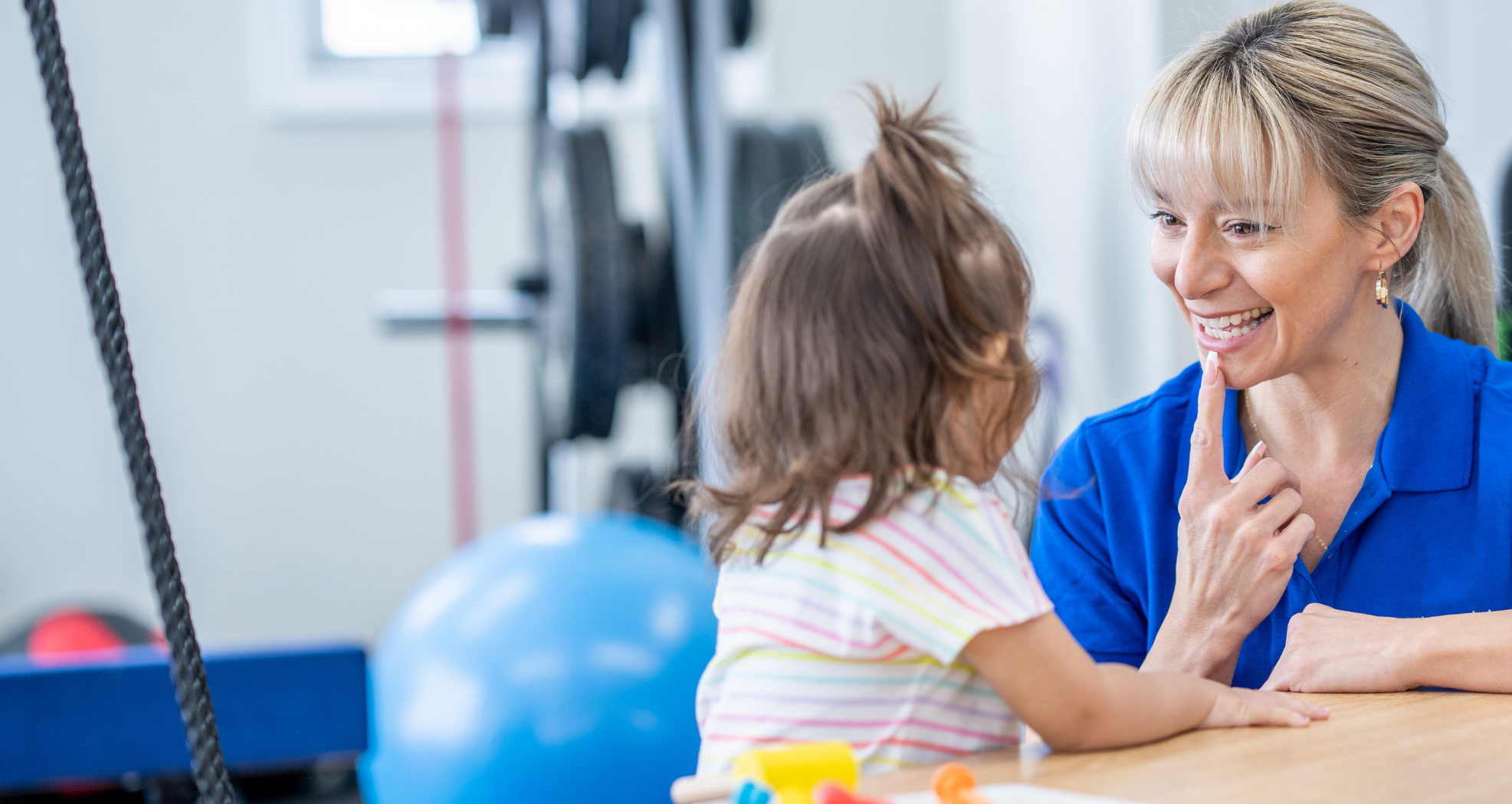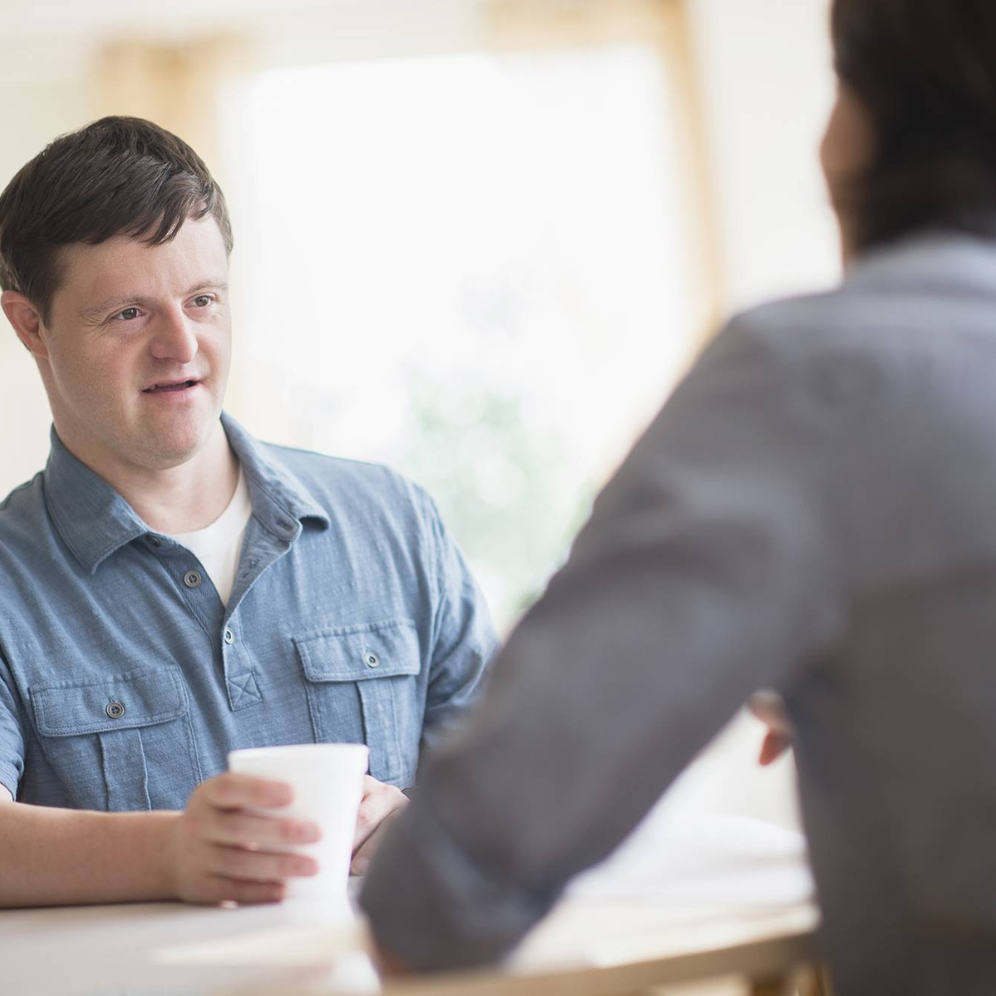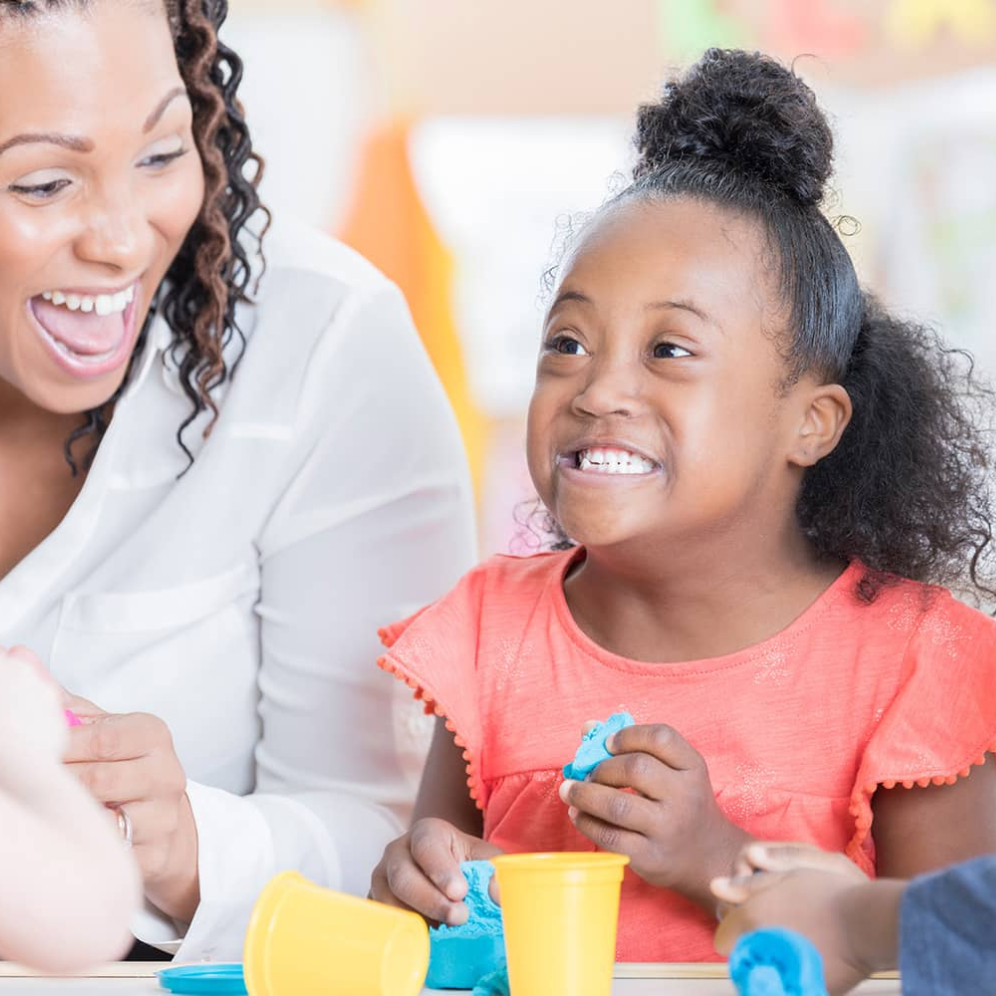Speech Therapy

Speech Therapy
Speech therapy, also known as speech-language therapy or speech-language pathology, is a specialized field of healthcare focused on diagnosing and treating communication and swallowing disorders. Speech therapists, also known as speech-language pathologists (SLPs), work with individuals of all ages who may have difficulties with speech, language, voice, fluency, and swallowing. The goal of speech therapy is to help individuals improve their communication skills and overall quality of life.

Adults With Developmental Disabilities
Speech therapy for adults with developmental disabilities is a specialized area of practice that focuses on improving communication skills and enhancing overall quality of life for individuals who may have cognitive, intellectual, or developmental challenges. This can include:
- Assessment and Individualized Goals
- Communication Modalities
- Articulation and Pronunciation
- Vocabulary and Language Development
- Social Communication Skills
- Functional Communication
- Augmentative and Alternative Communication (AAC)
- Fluency and Stuttering
- Voice and Vocal Quality
- Swallowing and Feeding Skills
- Personalized Activities
- Collaboration with Caregivers
- Community Integration
- Advocacy and Self-Expression
- Functional Literacy

Pediatric Speech Therapy
Pediatric speech-language pathologists (SLPs) work with children from infancy through adolescence who may have a wide range of communication challenges due to developmental delays, speech disorders, language disorders, or other conditions. Therapy sessions are designed to create a supportive and fun environment where children can learn and practice communication skills while building confidence and self-expression. This can include:
- Early Intervention
- Assessment and Individualized Goals
- Articulation and Speech Sound Disorders
- Language Development
- Social Communication Skills
- Fluency Disorders
- Receptive and Expressive Language
- Augmentative and Alternative Communication (AAC)
- Feeding and Swallowing Disorders
- Cognitive-Communication Skills
- Articulation and Language Games
- Parent and Caregiver Education
- Collaboration
- School Readiness
- Articulation and Language Drills
- Individual and Group Sessions
